Donn Posner – Treating Insomnia, Transdiagnostic Clinical Strategies to Optimize Sleep & Improve Outcomes
$200.00 Original price was: $200.00.$75.05Current price is: $75.05.
It’s no secret that insomnia frequently develops as a result of PTSD, anxiety, depression, chronic pain, and a wider variety of other behavioral and medical disorders.
Donn Posner – Treating Insomnia, Transdiagnostic Clinical Strategies to Optimize Sleep & Improve Outcomes
If you aren’t asking about your clients’ sleep, you’re making mistakes as a clinician. All clinicians should know how to properly assess and treat insomnia – sleep is that important for your clients’ health and quality of life.
It’s no secret that insomnia frequently develops as a result of PTSD, anxiety, depression, chronic pain, and a wider variety of other behavioral and medical disorders. Traditional wisdom has been that if you treat the primary disorder, the insomnia will go away. However, the data does not support this traditional wisdom. Although the primary disorder improves somewhat, the insomnia often does not, which can lead to diminished improvements in clinical outcomes regarding the primary disorder, increased dropout rate and higher relapse rates.
Despite you doing everything you can to target the primary disorder, your client continues to be tired and struggles more with symptoms of the primary disorder, leaving you frustrated and overwhelmed because you don’t know what to do next. The truth is, when clients have PTSD, anxiety, depression, or chronic pain, their symptoms are made worse — and treatment more difficult — when they’re not able to sleep. Therefore, the insomnia must be targeted directly.
Improve clinical outcomes in clients by integrating the treatment of insomnia into your practice!
Watch Diplomate in Behavioral Sleep Medicine Donn Posner, Ph.D., and he’ll walk you step-by-step through the treatment of insomnia. You’ll learn how to properly assess and develop a treatment plan for insomnia, as well as how to educate your clients about sleep to make them experts on their own sleep disorders. Discover evidence-based strategies to help your clients sleep longer and more efficiently, as well as enjoy increased energy levels during the day. As a result, your clients’ symptoms of PTSD, anxiety, depression, and chronic pain will decrease in frequency and severity.
You’ll walk away from this recording with the tools you need to treat insomnia. Better still, you’ll add vital techniques to your clinical tool kit that you didn’t know were missing.
Learn how to treat insomnia and revolutionize your treatment outcomes!
- Summarize the basics of sleep nomenclature including sleep period, phase, continuity, and architecture to inform clinical treatment interventions.
- Conduct a clinical assessment to differentiate acute insomnia from insomnia disorder in clients and articulate the importance of treating the chronic form as a specifically targeted co-morbidity.
- Explore the empirical evidence for the efficacy of CBT-I for both primary and co-morbid insomnia disorder to inform the clinician’s choice of treatment interventions.
- Articulate the basics of sleep regulation and demonstrate how to utilize these concepts in the deployment of CBT-I in clinical practice.
- Identify how to obtain useable client sleep diary data and strategies for analyzing the data for use in the treatment of insomnia.
- Apply the techniques of stimulus control, sleep restriction, sleep hygiene education and cognitive therapeutic strategies to the clinical treatment of chronic insomnia.
Sleep Regulation Problems: How Insomnia Develops
- Factors that weaken the sleep drive
- Factors that weaken the signal of the circadian clock
- How the circadian clock & sleep drive work together to regulate sleep
- How the arousal system interferes with sleep regulation
- Cognitions & behaviors that create cognitive arousal & interfere with sleep
- Identify conditioned insomnia
Assessment & Treatment Planning
- Treat insomnia to improve outcomes of PTSD, chronic pain, depression & anxiety
- Why treating a primary mental health disorder won’t cure insomnia
- Insomnia-informed considerations for the clinical interview
- Who is a good candidate for CBT-I
- Hypnotic medications & sleep
- Drugs that can cause sleep disturbance
- Take-home assessment resources
- Sleep diary
- Limitations of research & potential risks
Assessment Factors
- Assess for comorbid sleep disorders
- Evaluate sleep continuity
- Identify daytime symptoms of insomnia
- Discern bad sleep habits
- Other assessment considerations
- When to refer to a sleep specialist
Would you like to receive Donn Posner – Treating Insomnia, Transdiagnostic Clinical Strategies to Optimize Sleep & Improve Outcomes ?
Sleep Hygiene: Decrease Clients’ Vulnerability to Insomnia
- Clock watching & implications for sleep diary
- Environmental concerns
- How eating affects sleep
- When to exercise
- Address caffeine, alcohol & nicotine use
Sleep Restriction Therapy (SRT): Strengthen the Sleep Drive and Signals From the Circadian Clock
- Goals of sleep restriction
- Sleep restriction rationale
- SRT: Step-by-step
- Considerations for setting the sleep window
- How & when to extend time-in-bed
- Rules for before-bed activities
- Address clients’ fears about SRT
- Combat difficulty with waking on time
- Troubleshooting insufficient progress
Stimulus Control (SC): Address Conditioned Arousal
- Goals of stimulus control
- Rational for stimulus control
- Stimulus control: Step-by-step
- Counter arousal strategies
- Activities for nighttime wakefulness
- Address clients’ practical concerns
- Overcome obstacles to stimulus control
Cognitive Therapy: Help Clients Change Thoughts & Beliefs that Interfere with Sleep
- Reduce arousal: The buffer zone & worry time
- Educate your client to become an expert on their own sleep disorder
- Tools to identify cognitions & belief that interfere with sleep
- Combat intrusive thoughts during sleep time
- Activities to help clients with arousal
- Reduce sleep effort & worry about lack of sleep
- Correct clients’ unrealistic expectations
- Strategies to restructure thoughts
- Behavioral experiments
Be the first to review “Donn Posner – Treating Insomnia, Transdiagnostic Clinical Strategies to Optimize Sleep & Improve Outcomes” Cancel reply
Related products
Health & Medical
Health & Medical
Health & Medical
Health & Medical
Malka Stromer – Point of Care Ultrasound Course – Diagnose the Critical Issues Faster!
Health & Medical
Deborah Dana – Polyvagal Theory in Action with Deb Dana, LCSW
Health & Medical



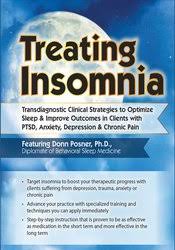




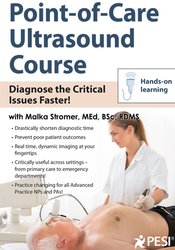

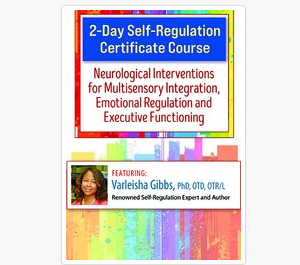
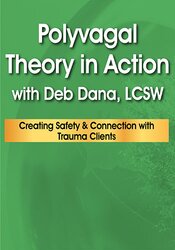
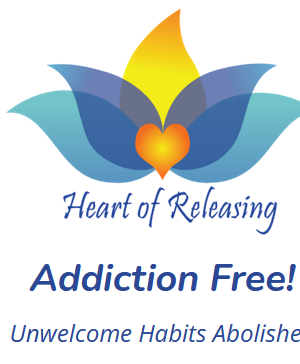
Reviews
There are no reviews yet.